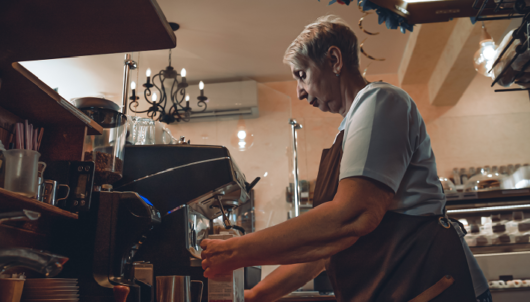“Customers today care less about breadth of assortment and more about availability.”
Covid-19 has accelerated key underlying global retail trends that were already reshaping the industry according to a new report by KPMG.
The research finds that retail markets globally are changing and the industry is continuing to evolve, while facing massive challenges from Covid-19 crisis. However, far from stopping or slowing change in the industry, the pandemic has sped them up.
In its report Global Retail Trends 2020, KPMG’s retail sector experts identified four key trends which will continue to impact operators:
- An evolving retail business model, with online platforms becoming the shopping malls of tomorrow.
- An increasing desire to explain a ‘sense of purpose’ to consumers.
- A rethink of the costs of doing business.
- A stronger focus on customer choices.
KPMG’s retail sector group predicts just two types of retailers will survive: those offering a limited yet curated selection and those offering unlimited selection.
The report also concludes that retail leaders will think more clearly about their investments into three key areas: customer loyalty programs, customer data, and technologies aimed at making the shopping experience easier, safer and more efficient.
“In the post-Covid-19 environment, consumers will place greater emphasis on both convenience and safety,” explains Jessie Qian, partner, head of consumer and retail at KPMG in China.
“During the lock-down, we have seen brands and shopping centers using WeChat Mini-programs, online social groups and live streaming videos to reach consumers through new channels without the need for foot traffic.
“Customer data has now become both an important and a valuable asset,” says Qian. “Brands and retailers will aim to use customer data to improve business efficiency and increasingly provide more targeted and personalised services.”
She says that while many physical stores will return to growth when the Covid-19 crisis passes, consumers’ experience shopping online through necessity will impact shopping behaviour in the future.
KPMG’s report on global retail trends predicts that during the year ahead, ongoing challenges with supply, demand and business continuity will force many retail groups to rethink their business models. This should spark “a new wave of innovation and competition in the industry”.
For retailers, cementing customer relationships may be the key to maintaining commercial viability in a post-pandemic world.
“For most retailers, that means leaning strongly into online sales, proving that speaking to customers and understanding their needs has become just as important as the bottom line,” says Qian.
Alice Yip, partner, head of consumer and industrial markets, Hong Kong, at KPMG China, says Covid-19 has been a catalyst for change in Hong Kong’s retail sector, impacting different retail formats by varying degrees.
“Retailers relying on traditional brick-and-mortar stores have taken a considerable hit, while online shops are increasing their trading volumes and attracting new customers. When preparing for a post-Covid-19 environment, Hong Kong retailers will need to revisit their business models to better connect sourcing, logistics, customer interaction and product sales both online and offline.
“The aggressive cost-containment strategies implemented in the midst of Covid-19 have shown retailers that they will need to go further if they hope to return their business to profitable growth. Retailers will increasingly need to leverage data and analytics to identify their most profitable stores, configurations and products, and based on this, make important decisions,” she says.
“The Covid-19 pandemic has shifted customer expectations. Customers today care less about breadth of assortment and more about availability.”
That sentiment was echoed by Anson Bailey, partner, head of consumer and retail in Asia Pacific at KPMG:
“As we see changing consumer behaviour, business models are evolving with the rise of platforms in Hong Kong and retailers need to move quickly as the technology is accelerating and the speed of change is relentless,” he says.
“Consumers have greater expectations from those online experiences in terms of unlimited selections, instant delivery, transparent pricing and more flexible payments. We are therefore going to see a greater focus and investment dollars on those ecommerce platforms.”
The group predicts that in the light of new global retail trends, retailers will focus on improving transparency, and on helping society respond and recover from the current health crisis.
They also expect leading retailers will move from having a purposeful brand promise to using their purpose as a guiding growth principle and “a decision-making lens”.






